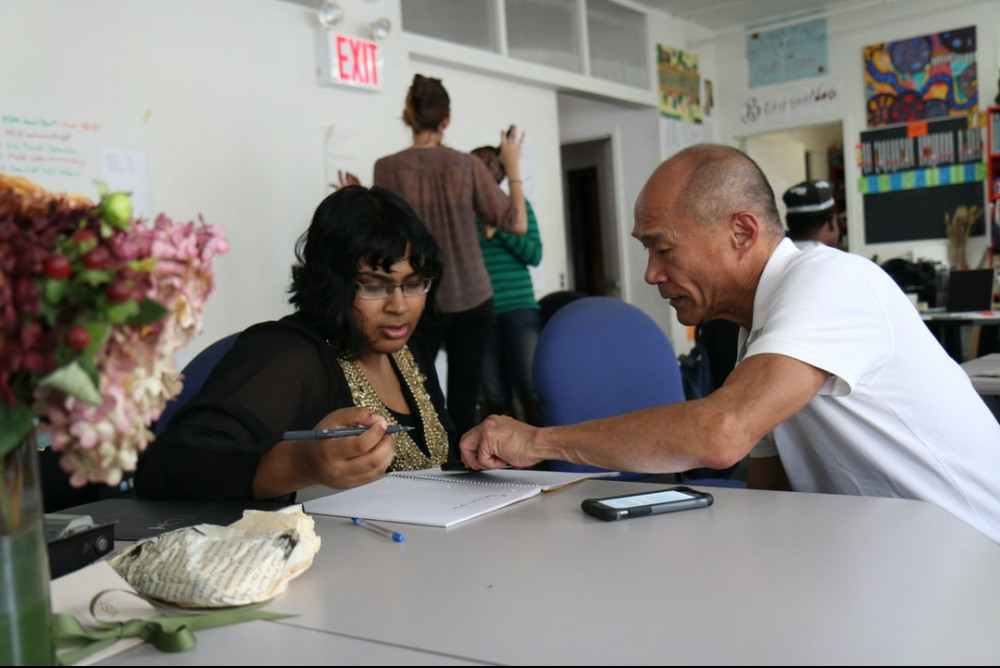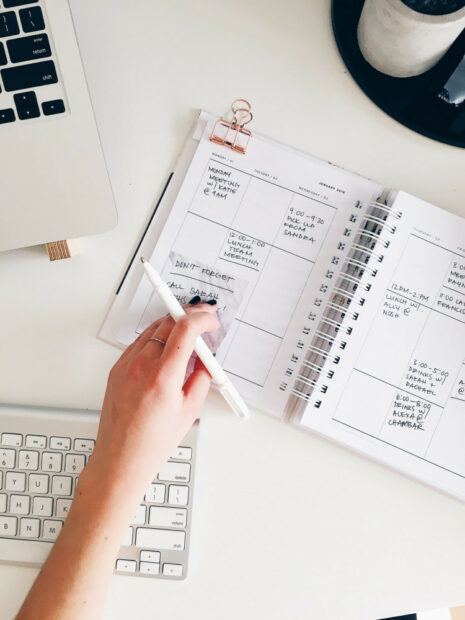How to Create a Professional Development Plan
To start off let’s understand what a professional development plan is. Generally it is a pretty simple concept that kind of explains itself. More specifically, it is a roadmap used to mark points along a career to help you understand important skills and milestones you should acquire while advancing your career. They are important because without one, you could float aimlessly through a career and never truly understand the potential you could reach with a solid plan.
Most professions that require such a plan have tools in place to help people create them but, they are a valuable resource that can help in any profession. So if you’re a teacher or a young entrepreneur this article can help both sides and all in between. In this article we will go over every important section of these plans and how to put it all together into a cohesive unit.
The first thing you’ll need is a goal
The goal right off the bat doesn’t need to be painfully specific. The goal you are aiming for should be specific enough however that you can name it and it can give you a basis for the steps that come later in this article. Without a goal, there would be no end to your plan, and why plan if there isn’t a destination in mind?
When it comes to picking a goal, understand that there will be smaller goals that lead to the ultimate goal waiting at the end. One of these goals could be graduate college to get a degree. With that degree you can tackle even larger goals, and that’s how progress is tracked. Using the acronym of SMART goals is a great way to tell if the goals you’re placing can help you.
SMART goals stands for the following: Specific, Measurable, Attainable, Realistic, and Timely. If your goals match all of these criteria, it’s safe to move forward and include them in your plan. With these in place, you should already have a basic roadmap in front of you for your development plan!
Fill in the blanks with skills
Now that you’ve got your goals in place there should be an outline of a plan in front of you. This outline can be filled in with small things to get the ball rolling. For example if a goal is to graduate with a BA in history from a certain university, what skills do you need/want to learn in order to make that happen and are they measurable? Obviously whatever you need to graduate is told to you in the coursework and degree requirements but include those in your development plans.

This goes for undergrads, grad students, and even people not in academia. If you want to get promoted in whatever kind of company you’re working in, what skills do you need to master in order to be seen as a leader? A small list of these skills include communications, negotiations, team building, performance, organization, etc.
A good way to measure skills is by certifications and milestones. Depending on whatever career you’re aiming for there are bound to be certain certifications like degrees or courses to take from conferences that will help you progress towards the next goal. Of course it can be hard to know exactly what skills are needed sometimes so that leads us into our next point.
Check out our article on gaining certifications for professional skills here
Find a mentor

This is arguably the most important point when it comes to actually progressing through a professional career. A mentor is there to show you the way through a career. This can be either the route they took or a completely separate one. The reason they are so important however, is because they will teach you how to avoid the mistakes they made along the way.
A proper mentor will know what goals and milestones can lead to success as well as have good connections for reaching them quickly. Having the wisdom of someone who has been in your shoes before means you can avoid situations that would hinder your growth. These mentors can be found everywhere whether they are parents, advisors, or seniors in your company. The most important thing is to find one that you trust. Having trust in your mentor means you will follow their advice even if the decisions might not sound right to you. Having the wisdom and foresight will help you cruise through your development plan smoothly.
Create a routine to generate action
Now that the plan is in place and goals are set, it is important to help yourself create momentum towards those goals. It is said that an object in motion will stay in motion so lets get moving! The “secret” to achieving goals is to have a solid routine that leads up to big results. The same way hitting the gym regularly shows results in your body, working on specific skills everyday will show results in your career.
Talk with your mentor about what kind of routine can help you achieve those goals and acquire those skills. Practice makes perfect and in the context of professional development, you’re already working there almost everyday, why not grow from it? This is where people tend to fall off the plan and deviate in their own ways. You can deviate and still find success, sure but you won’t be fully in control. A professional development plan is for those seeking to take control of their career and steer their lives in the direction they want.
Another key to create a good routine is to really break down your current self. Check where your weaknesses and strengths are and find a way to work on the weaknesses and enforce the strengths a bit routinely, doesn’t even need to be everyday. This assessment can come from within or also from your mentor who will have a harsher, more objective view of what you need to work on. Hearing critiques from those you respect is a great way to jump start motivation.
Lastly, put it all on a timeline

This is where the Timely part of smart goals comes in. Having a plan is great and all but you need to make sure you have a timeline to keep yourself accountable and keep the goals realistic. Check with your mentor or others in the organization to see what kind of timeline you should put yourself on. Discussing it with someone also puts a bit of extra pressure on you because now they know your goals which will make you work harder towards them than if you kept it in your head.
Put a timeline on each goal based on the skills needed to achieve that goal and by the end of this process you will have an extensive roadmap detailing almost everything you should need to do to achieve that final end goal. The end goal may not be terribly clear to start but as time goes on you’ll have a clearer picture and start working harder and harder to achieve it.



Good day Quentin Hardy. A happy new month to you. Thanks for this article that serves as a guide on how one can create a professional development plan. This will ensure that one gets to keep track of his professional goals and achievements, hence making sure one stays on the right track in doing so.
That’s what it’s all about. If you don’t know where your career is taking you, how are you supposed to control your future and income? Intentional planning is immensely important
Thank you very much for this instructive piece. I have bee able to create goals, I have attended several classes in a bid to gain skill. Also, I have a mentor I am following, but my challenge has always lied at creating a routine. Every time I try to adapt to a routine I end up failing. but like you highlighted, I think I will talk to my mentor and see where I can adjust and adapt to new ways
Routines are about consistency before anything else. Be sure to start with goals that you can handle and slowly ramp up the intensity to push yourself. A lot of people make the mistake of pushing much too hard from the get-go
Hi there! Thank you for this article on showing how to create a professional development plan. I think this is information that every person needs especially when they are entering the real world. Success requires much planning beforehand but the steps involved is not always too obvious at first. Fortunately, this article helps keeps things simple and helps with defining and organizing things.
It really is all about proper planning and resource management. If you can break down a Big goal into smaller steps, it becomes a lot more doable!
Those who fail to plan, plan to fail and that’s what this article is trying to show. I like how you made the process simple by explaining each step and the purpose for each step. I think the better we understand what we’re doing and why we’re doing greatly enhances the outcome. I think this is a great article for persons of all ages because we always have a goal in mind, be it learning to play a new sport or getting a promotion at work. Proper planning is a necessary tool for success.
Thanks for the feedback and I like the way you put it: planning is definitely a tool to be used to push growth along
Thank you for these simple steps to create development plan. Yeah, it all starts with a plan. I have been figuring out how to break my general goal into smaller ones that contribute to the end results I want. This is a good exercise and I must say it’s not as easy as one may initially think. You have put me on the right track on this. Thanks!
It can definitely be a daunting task at first and it can seem scary to actually put your goals into words/on paper/ The important thing is to find someone to help you with that process and be diligent once you do start
Thank you for such an informative article. I’ve been struggling with my future professional development, so this should come in handy to make a ‘roadmap’ for my future. I think I understand most of the concept. However, do you have any advice on where I can find such a mentor? I’m not sure if I want to spend money to hire a professional mentor. However, if it’s just a one-time seminar, I think I will do it.
Mentors can come from anywhere! In this age of social media I’m sure you can find someone in your field who may work at your office/school/building or wherever who would be willing to sit down for a few minutes and discuss whatever questions you may have.
LinkedIn is a great place to look as well
Hi Quentin,
I see that your website can teach me a thing or two about how to organize my work and my life. This is such a lovely article on making a positive development plan. In fact, I loved the bit about getting everything down to a timeline.
In fact, I was reading a friend’s blog yesterday and she was talking about goals, and her pace of progress is mind-boggling. I guess when u set goals, there’s a direction and purpose.
Thanks for this lovely blog.
Regards,
Aps
Everyone’s pace is different and some people move at the speed of light haha. The important thing is keeping the goals and pace relative to you and work around those expectations, not the ones set by people around you
everyone that wants to succeed in business hours have. knowledge about How to Create a Professional Development Plan.I have attended several classes in a bid to gain skill. Also, I have a mentor I am following, but my challenge has always lied at creating a routine. Every time I try to adapt to a routine I end up failing. I think it’s proper to talk to my mentor and find out better way. Thanks.
Definitely talk to your mentor about the routine. And if not them, a family member or friend outside of your professional field can be better. Tell someone you love about the routine you want to keep and have them hold you accountable. Loved ones want to see you succeed so they’ll ask questions about the routine and if you don’t hold up your end, it’ll feel more personal if they tell you to keep it up than if your mentor did